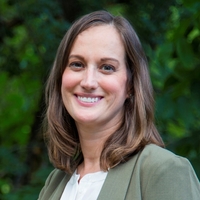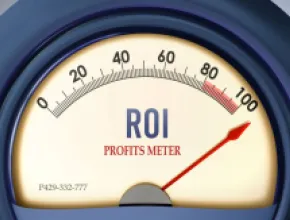When planning a one-on-one hosted buyer event, finding the right vendor and buyer match can make or break the event. Planners can streamline the process by pairing buyers and vendors so they can make meaningful connections and create opportunities.
This model does a really great job of bringing buyers and suppliers together in the most efficient manner possible, noted Rachel Andrews, director of marketing and events for Cvent.
“Nothing beats the power of meeting face to face,” Andrews said. “We have seen it time and again that facilitating one-on-one appointments at hosted buyer events leads to more meaningful business relationships and closing more deals.”
But getting to the right pairing and creating a connection during the meeting can be tricky. To make sure your hosted buyer event is a success, Andrews and independent meeting planner Victoria DeSilvio offered the following tips and advice on how to plan for and see through a successful meeting.
1. Invite the Right People
An event is only as successful as the people. It starts with making sure qualified buyers and vendors are at the event.
Andrews says are challenges to overcome with buyers, including that they think they will be meeting with people they already know or already have longstanding relationships with vendors, and don’t want to be part of “unproductive” meetings with vendors that can’t meet their needs.
To overcome this, ensure that you have the right mix of suppliers. “While venue sourcing is still the primary purpose for most hosted buyer programs, buyers are also looking to be inspired to evolve their events by incorporating new vendors and offerings,” Andrews noted.
She suggests some criteria when selecting attendees:
- Buyers must be representative of a company with a good reputation in the industry. Once there, they should attend all scheduled appointments.
- Sellers should be pre-qualified to meet the needs of the buyers.
2. Timing and Length of Meetings
Both DeSilvio and Andrews suggested meetings lasting about 20 minutes total, including time to get to the next appointment. This allows enough time for a buyer to understand what a vendor is offering and the two sides to have a brief conversation. DeSilvio likes holding hosted buyer meetings in the morning when everyone is alert and focused, and if there are a lot of meetings scheduled, holding them over a number of days, if the event allows.
3. Meeting Scheduling
Hosted buyer events can be coordinated through a platform or the meeting planner. Attendees might be matched based on title, role, location, industry or other factors, Andrews explained.
“It’s critical that the right questions are asked during registration in order to support the most efficient and successful one-on-one planning,” she said.
Attendees success and satisfaction depends on productive meetings, and taking the time to gather the right information and match people is important.
[Related Content: An Essential Contract Checklist for Meeting Planners]
Both DeSilvio and Andrews have seen an interest from attendees wanting to customize their schedule and appointments according to business and event goals and needs. A challenge of this, though, is to make sure there aren’t vendors with an open time slot.
A “happy medium” to this, Andrews suggested, is matching people and giving them final approval of recommended appointments before a schedule is set. In the end, the goal is to match people in a way that benefits both sides. One-on-one hosted buyer meetings should connect buyers who might not consider a vendor for one reason or another.
“The meeting is another opportunity for the buyer to broaden their search for things they might be considering,” DeSilvio said.
4. Schedule Down Time
There might be instances where either vendors or buyers will have breaks in their schedules. Buyers might need time to decompress and mull over recent meetings, for example.
If the schedule has lulls and the ratio of vendors to buyers isn’t equal, there are still opportunities to keep things productive.
“Ensuring that buyers feel like they are getting a good return on the investment of their time and energy is one of the primary considerations at hosted buyer events, so planners should make sure whatever programing filling these gaps is productive,” Andrews said.
[Related Content: 10 Tips for Keeping Up With the Latest Event Technology]
Options that Andrews has seen used to keep people engaged during schedule breaks include:
- Holding educational sessions in the interim
- Providing space for buyers to digest notes, check emails or do follow-ups from one-on-one meetings
- Working in time to travel from one meeting to the next so attendees don’t feel rushed
5. Plan for Success
In the end, it’s up to the event planner to coordinate mutually beneficial relationships in a short time. That’s why planning ahead is so important.
“The onus falls on event planners to ensure that the right buyers are meeting with appropriate vendors to ensure that both parties are getting the most out of the event,” Andrews reiterated.
At Meetings Today, we know a thing or two about planning successful hosted buyer events. Check out our full line-up of Meetings Today LIVE! event offerings.







